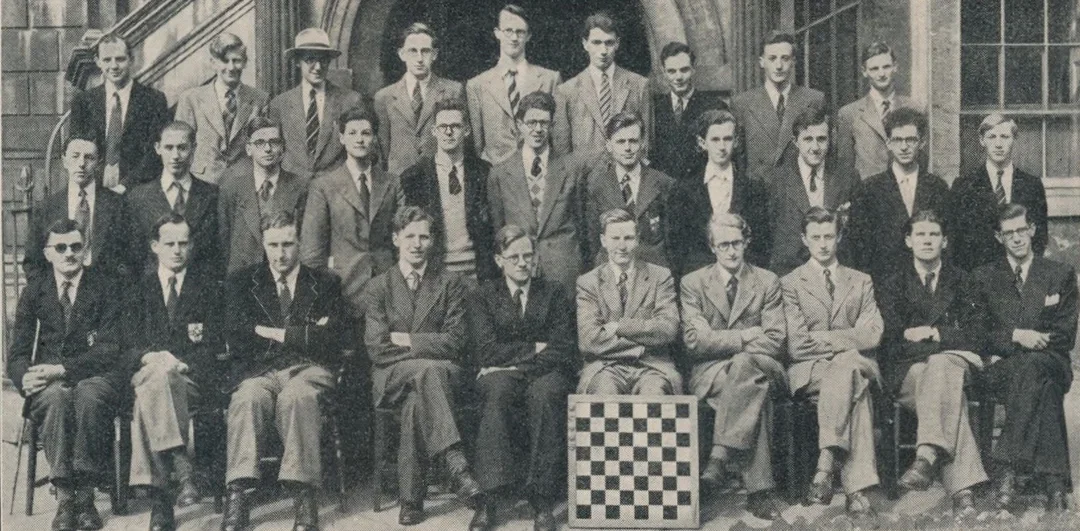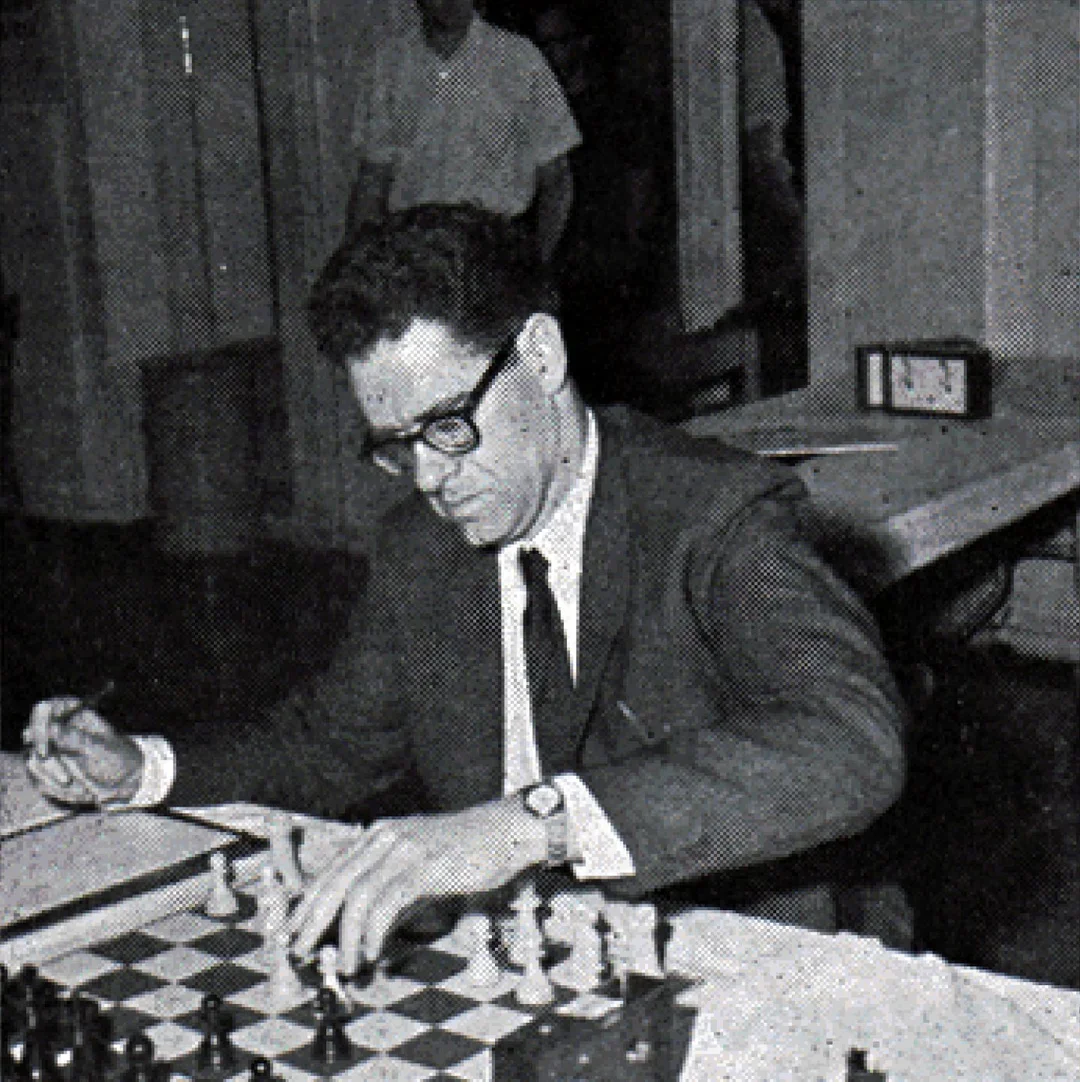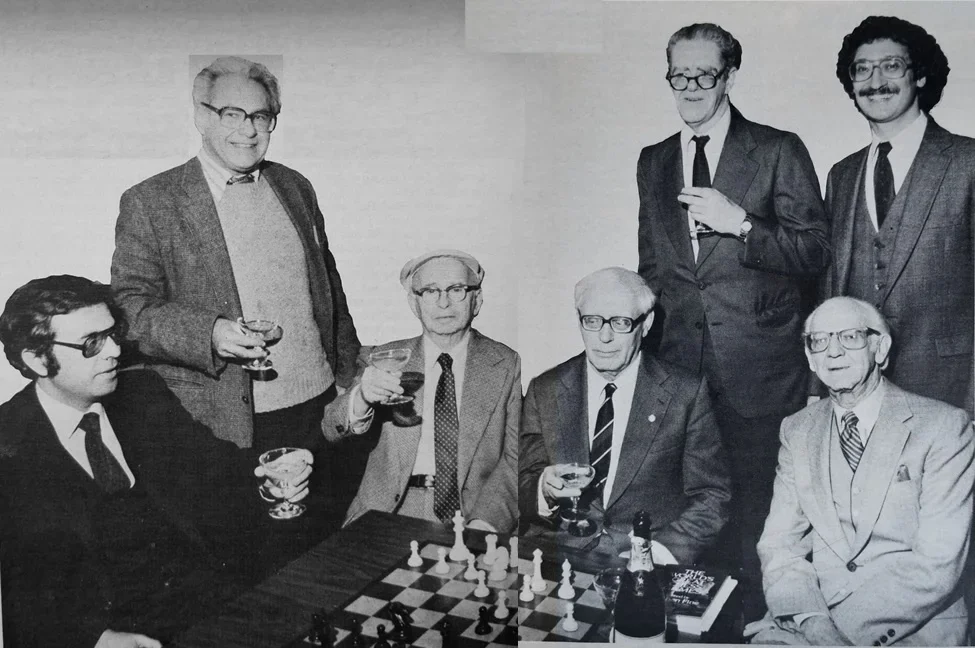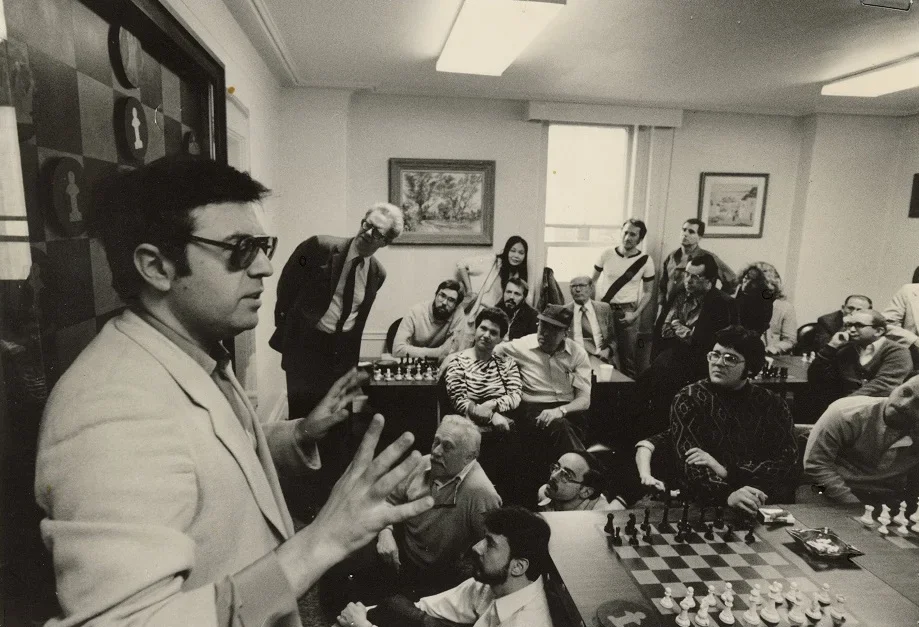Editor's note: This story first appeared in the December 2023 issue of Chess Life Magazine. Consider becoming a US Chess member for more content like this — access to digital editions of both Chess Life and Chess Life Kids is a member benefit, and you can receive print editions of both magazines for a small add-on fee.
“Fun!”
That’s how Neil McKelvie sums up his 80-plus years of playing chess.
Born in England in 1930, McKelvie learned the game from his father when he was four years old. In 1940, shortly after the outbreak of World War II, he escaped “The Blitz” by moving with his mother from London to New Jersey. He learned more about the game from a teacher at his private school there. After the war, McKelvie returned to England to continue his studies at Cambridge, earning his B.A. and M.A. It was during those years that McKelvie had the rare honor of taking first board for Cambridge in its annual match against Oxford.
McKelvie returned to the United States in 1954 to earn his doctorate in chemistry from Columbia University. He did post-doctoral work in analytical chemistry at Yale, got married, settled in New York City, and became a member of the Manhattan Chess Club.

In those early years in New York, McKelvie had occasion to play John Collins, a regular at the rival Marshall Club, who was making a rare appearance in an event at the Manhattan club. Collins, as always, was there with his sister Ethel, and the two were known to all, since Collins had worked with the likes of the Byrne brothers, William Lombardy, and, of course, Bobby Fischer.
McKelvie found that he greatly enjoyed playing at the Manhattan. The club was full of businessmen who took the game seriously, but who also had professional lives. For them, chess was nothing more than a pleasant distraction. McKelvie played there throughout the 1960s, drawing the attention of Chess Review readers with his win over GM Pal Benko.

By the 1970s, McKelvie was in his 40s and still doing quite well at his “fun distraction.” In 1971, two prominent blitz tournaments took place: one was at the Manhattan to celebrate Fischer’s run to the world championship, and the other was at the Marshall. In the Manhattan event, Fischer annihilated the best players in New York, scoring 21½/22 (only Walter Shipman drew him), and Andy Soltis edged out Robert Byrne for second place.
The Marshall event lacked Fischer but included Samuel Reshevsky. The tournament began with two groups: McKelvie won one and Robert Byrne won the other. In the final round-robin, both men, along with Reshevsky, Arthur Bisguier, and Donald Byrne, were among the remaining participants. After losing to Bisguier and both Byrne brothers in the first three rounds, McKelvie thought his luck had run out. In the fourth, he met Reshevsky.
Ultimately Bisguier, a friend of McKelvie’s and the 1954 U. S. Champion, won the event.

The 1970s proved to be a great decade for the Manhattan club and McKelvie, who won the club championship twice, in 1975 and 1979 (with Jorge Massana).
He also had the occasion to witness an unusual event. Here we quote McKelvie:
“He [Bobby Fischer] had been in California doing whatever for some time, and suddenly walked into the Manhattan Chess Club. It was nearly empty, and I was about to go home, but we sat down together in a side room. I said that he could have been successful in many other occupations. He sprang to his feet with his back to me and gave a speech to an invisible audience about how he could have been great at so many things! I realized that he was quite deranged, but eventually he sat down and saw me.
I said that he certainly had superb intellect, but now in his early 30s it was a bit late to put in years of training, which for many started in childhood, like him in chess. I suggested computer programming, and I was sure Apple Computer for one would be interested in him.
I suggested a computer for rapid chess that would have a 10 second pause before a loss on time. I then left to go home. Years later, Fischer patented such a clock!”
As the Fischer boom died out, McKelvie continued to play at the Manhattan, though not with as much success as before. Still, the game provided much fun, and was a pleasant diversion for many years.
In the 1990s, McKelvie’s first wife became sick, and he would eventually leave the club to spend more time with her before her passing. Today he lives comfortably in Mt. Vernon, New York. While he has largely retired from chess, he still looks at various puzzles and stories.

He also continues with his other great passion — the piano. McKelvie is an accomplished amateur pianist, having taken lessons with a number of leading teachers in his nearly 70 years of playing, and he has earned multiple special prizes in competitions.
McKelvie enjoys entertaining others with his wit and stories, and would welcome visits from any chess players who find themselves in his neck of the woods. Contact Joshua Anderson at [email protected] if you would like to connect with McKelvie.
For more, check out McKelvie’s self-penned “My Best Move” in our March 2020 issue.
SELECTED GAMES
How to describe Neil McKelvie’s playing style? Let’s quote two experts:
“Chemist McKelvie is naturally a master of analysis and accordingly prefers carefully concocted hot variations.” (IM Hans Kmoch, Chess Review, August 1967)
“McKelvie’s chess style is best described as optimistcally enterprising. His sharp, aggressive play leaves little room for compromise.” (GM William Lombardy, Chess Life & Review, December 1975)
After reviewing nearly 80 of McKelvie’s games, spanning almost 40 years of play, my only disagreement with these two masters is that they might have understated the case.
While capable of subtle positional struggle, McKelvie clearly relished the to-and-fro of tactical battle. Here are some of his most interesting games that were published in Chess Life. Additional games are available here.
Categories
Archives
- January 2026 (8)
- December 2025 (27)
- November 2025 (29)
- October 2025 (39)
- September 2025 (27)
- August 2025 (29)
- July 2025 (43)
- June 2025 (25)
- May 2025 (24)
- April 2025 (29)
- March 2025 (29)
- February 2025 (20)
- January 2025 (24)
- December 2024 (34)
- November 2024 (18)
- October 2024 (35)
- September 2024 (23)
- August 2024 (27)
- July 2024 (44)
- June 2024 (27)
- May 2024 (31)
- April 2024 (51)
- March 2024 (34)
- February 2024 (25)
- January 2024 (26)
- December 2023 (29)
- November 2023 (26)
- October 2023 (37)
- September 2023 (27)
- August 2023 (37)
- July 2023 (47)
- June 2023 (33)
- May 2023 (37)
- April 2023 (45)
- March 2023 (37)
- February 2023 (28)
- January 2023 (31)
- December 2022 (23)
- November 2022 (32)
- October 2022 (31)
- September 2022 (19)
- August 2022 (39)
- July 2022 (32)
- June 2022 (35)
- May 2022 (21)
- April 2022 (31)
- March 2022 (33)
- February 2022 (21)
- January 2022 (27)
- December 2021 (36)
- November 2021 (34)
- October 2021 (25)
- September 2021 (25)
- August 2021 (41)
- July 2021 (36)
- June 2021 (29)
- May 2021 (29)
- April 2021 (31)
- March 2021 (33)
- February 2021 (28)
- January 2021 (29)
- December 2020 (38)
- November 2020 (40)
- October 2020 (41)
- September 2020 (35)
- August 2020 (38)
- July 2020 (36)
- June 2020 (46)
- May 2020 (42)
- April 2020 (37)
- March 2020 (60)
- February 2020 (38)
- January 2020 (45)
- December 2019 (34)
- November 2019 (35)
- October 2019 (42)
- September 2019 (45)
- August 2019 (56)
- July 2019 (44)
- June 2019 (35)
- May 2019 (40)
- April 2019 (48)
- March 2019 (61)
- February 2019 (39)
- January 2019 (30)
- December 2018 (29)
- November 2018 (51)
- October 2018 (45)
- September 2018 (29)
- August 2018 (49)
- July 2018 (35)
- June 2018 (31)
- May 2018 (39)
- April 2018 (31)
- March 2018 (26)
- February 2018 (33)
- January 2018 (30)
- December 2017 (26)
- November 2017 (24)
- October 2017 (30)
- September 2017 (30)
- August 2017 (31)
- July 2017 (28)
- June 2017 (32)
- May 2017 (26)
- April 2017 (37)
- March 2017 (28)
- February 2017 (30)
- January 2017 (27)
- December 2016 (29)
- November 2016 (24)
- October 2016 (32)
- September 2016 (31)
- August 2016 (27)
- July 2016 (24)
- June 2016 (26)
- May 2016 (19)
- April 2016 (30)
- March 2016 (36)
- February 2016 (28)
- January 2016 (32)
- December 2015 (26)
- November 2015 (23)
- October 2015 (16)
- September 2015 (28)
- August 2015 (28)
- July 2015 (6)
- June 2015 (1)
- May 2015 (2)
- April 2015 (1)
- February 2015 (3)
- January 2015 (1)
- December 2014 (1)
- July 2010 (1)
- October 1991 (1)
- August 1989 (1)
- January 1988 (1)
- December 1983 (1)







